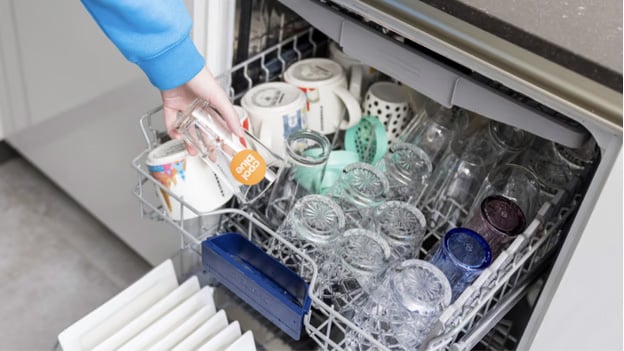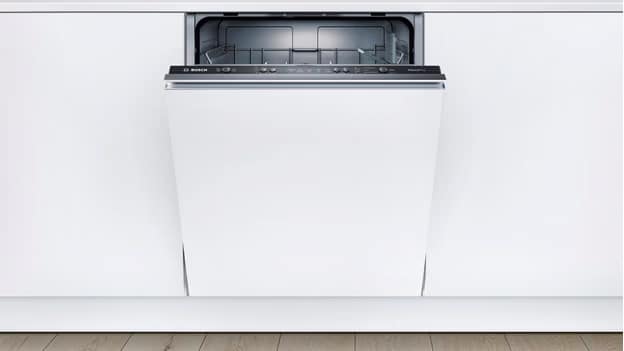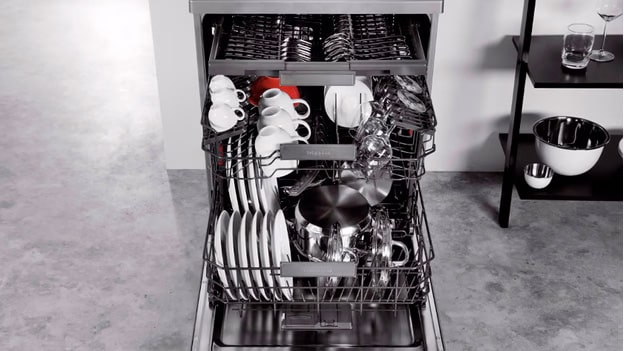
What different drying techniques are there?
3 types of technologies
The drying technique of your dishwasher determines how dry your dishes will get in the dishwasher. There are 3 different drying techniques:
- Zeolite drying method
- Fan drying method
- Condenser drying method


Zeolite drying method
Zeolite is an active drying method. There are special zeolite granules at the bottom of the dishwasher. When the water is drained away after washing, it ends up with the granules and heats them up. The heat that this generates enters the interior and dries your dishes. Plastic containers will dry completely this way. The zeolite granules repair themselves after every wash, so you never have to replace them. This method is very energy-efficient and it’s only available with dishwashers from Bosch and Siemens with a C energy label or higher.
Ventilation drying method
The ventilation drying method is another active drying method. After the drying cycle, the dishwasher door opens slightly. This ensures that the last bits of moisture evaporate. With this method, the dishwasher saves time and energy, so your dishes dry faster. Plastic spoons and containers dry better than with the standard condenser drying technology.


Condenser drying technology
Most dishwashers use the standard condenser drying technology. This is the most basic technique which you’ll find in more affordable models. During the drying process, the warm, moist air condenses on the cool walls of the dishwasher. The appliance then pumps out the water. Drying this way works very well for pottery, glass, and steel, but not plastic.
